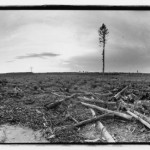More than one million Ontarians call for an end to unwanted logging in Grassy Narrows
 Organizations representing more than one million people across Ontario are calling on Premier Kathleen Wynne to a make a clear and unequivocal commitment that the province will respect the wishes of the people of Asubpeeschoseewagong (Grassy Narrows) that no new logging permits be issued in their traditional territory.
Organizations representing more than one million people across Ontario are calling on Premier Kathleen Wynne to a make a clear and unequivocal commitment that the province will respect the wishes of the people of Asubpeeschoseewagong (Grassy Narrows) that no new logging permits be issued in their traditional territory.
FOR IMMEDIATE RELEASE Thursday August 22, 2013
Premier Wynne does not respond to request for dialogue with civil society groups
Toronto – Organizations representing more than one million people across Ontario are calling on Premier Kathleen Wynne to a make a clear and unequivocal commitment that the province will respect the wishes of the people of Asubpeeschoseewagong (Grassy Narrows) that no new logging permits be issued in their traditional territory.
The province is currently engaged in five year long talks with Grassy Narrows over the management of their traditional lands in the Whiskey Jack forest, north of Kenora. Last year, while the talks were in progress, the Ministry of Natural Resources unilaterally adopted a ten year forest management direction for Grassy Narrows Territory that included no meaningful recognition of Aboriginal and Treaty rights and perpetuated the model of industrial clear-cutting that first sparked an ongoing blockade at Grassy Narrows a decade ago.
In June, a wide range of human rights, faith, labour and environmental organizations wrote to the Premier urging her to call an end to unwanted logging permits on Grassy Narrows lands as a good faith demonstration of the province’s commitment to a forest management approach that respects Aboriginal rights.
Premier Wynne has not responded.
J.B. Fobister of Grassy Narrows said, “It has become routine for the Ontario Ministry of Natural Resources at all levels to ignore letters from Grassy Narrows and they have completely ignored our demands to end clear-cut logging.”
Maude Barlow, National Chairperson of the Council of Canadians said, “The people of Grassy Narrows continue to suffer the effects of the mercury contamination of their rivers and streams which was first discovered more than forty years ago. Industrial clear-cut logging has not only destroyed trap lines and wiped out medicinal plant picking areas, it has almost certainly also contributed to new mercury leaching into their rivers and streams.”
“The people of Grassy Narrows are owed a debt of justice,” said Shane Moffat of Greenpeace Canada. “Upholding their rights is a matter of concern to all Ontarians concerned with justice and the respectful reconciliation of Aboriginal and non-Aboriginal peoples.”
Large-scale clear-cut logging has been halted in the Grassy Narrows traditional territory since 2008 when a major buyer of Canadian pulp, the Boise paper company, announced it would only use pulp sourced in Grassy Narrows if sustainable forestry standards are met and the human rights of the community are respected by obtaining their free, prior and informed consent.
“Boise’s decision to respect the rights of the people of Grassy Narrows should have been a wake-up call to the province that a new approach to forest management is needed,” said David Sone of Earthroots. “Instead, the Ministry of Natural Resources has persisted in a unilateral approach to decision-making that has only led to conflict and hardship.”
“International human rights standards set out a clear requirement to obtain the free, prior and informed consent of Indigenous peoples in any decision that could have implications as serious as clear-cut logging on a people’s traditional lands,” said Craig Benjamin of Amnesty International Canada. “A commitment to respect this right would allow for a real conversation between Grassy Narrows and the province, one that is not constantly overshadowed by the threat of the unilateral renewal of clear-cutting.”
“By agreeing to enter into high level forest management talks with the people of Grassy Narrows Ontario opened the door to a new relationship based on recognition of rights, reconciliation of interests and mutual consent in decision-making,” said Jennifer Henry of KAIROS: Canadian Ecumenical Justice Initiatives. “This opportunity must not be squandered by the business as usual approach demonstrated by the Ministry of Natural Resources.”
Contact:
Chief Simon Fobister
Grassy Narrows First Nation
(807) 407-0170
J.B. Fobister
Grassy Narrows spokesperson
(807) 407-2745
Elizabeth Berton-Hunter
Media Relations, Amnesty International
(416) 363-9933 ext. 332
Dylan Penner
Media Officer, Council of Canadians
1-800-387-7177 ext. 249
Signatories to Joint Letter:
Amnesty International Canada, Canadian Friends Service Committee, Christian Peacemaker Teams – the Aboriginal Justice Team, Council of Canadians, Earthroots, Greenpeace Canada, KAIROS: Canadian Ecumenical Justice Initiatives, Ontario Federation of Labour, Ontario Secondary School Teachers’ Federation, National Indigenous Anglican Bishop





